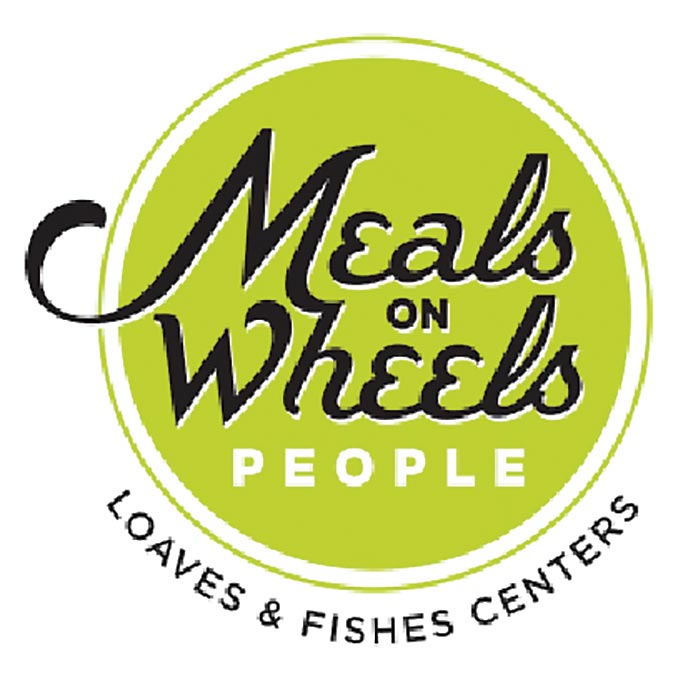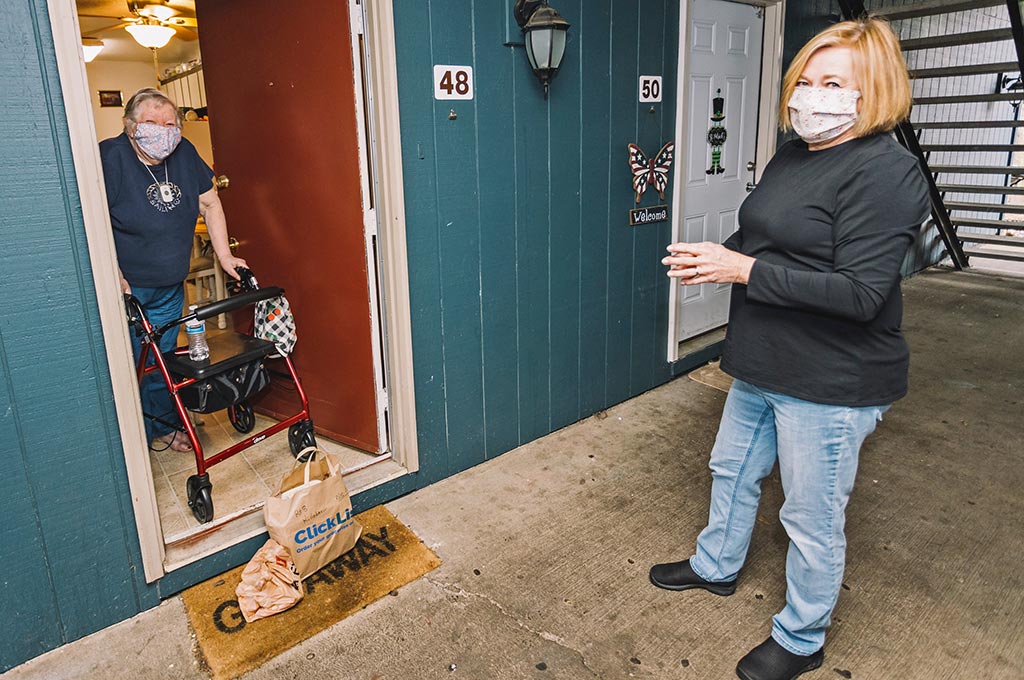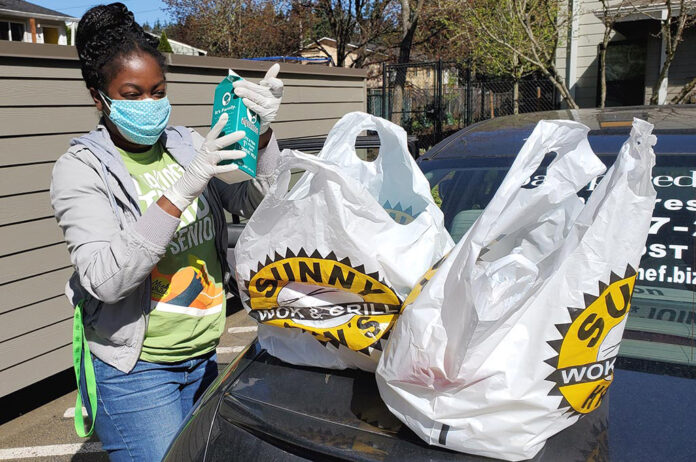The Meals on Wheels People non-profit has always delivered meals to home-bound seniors (thus, the “wheels”) along with serving congregate meals in senior centers in Multnomah, Washingon and Clark counties, but now the organization is only providing home deliveries because of the coronavirus pandemic, according to Julie Piper Finley, director of communication and public relations.

But first and foremost, Piper Finley wants everyone to know that people over the age of 60 qualify to utilize the service. “People think this is only for poor people,” she said, noting that no senior seeking the meal service has been turned away, and the service starts 48 hours after they sign up.
“Pre-pandemic, we had two programs going – the Meals on Wheels home deliveries and serving meals in two dozen neighborhood dining centers, but those closed at the end of March,” Piper Finley said.
“They probably won’t reopen until there is a vaccine, so we are probably looking at a year. We are using an abundance of caution in not exposing vulnerable seniors to the coronavirus.”
So the non-profit underwent a transformation, adding new Meals on Wheels routes and quickly gearing up from serving 5,000 meals a day to 8,000 per day. It also stopped delivering fresh meals every weekday and instead delivers seven meals once a week to limit the exposure of seniors to the drivers. “That is a big, big change,” Piper Finley said.
“We used to deliver every day Monday through Friday, and people had to be home between 10:30 and 12:30 because we don’t leave food on the front porch. With a delivery only one day a week, this gives seniors more flexibility.”
Meals on Wheels People stopped hot meal deliveries a couple years ago, according to Piper Finley, with a typical meal consisting of an entree and vegetable plus a roll, salad and dessert. Now recipients get two fresh meals every week and the rest are frozen.
“They also get a loaf of bread, fresh fruits and vegetables, and a quart of milk,” Piper Finley said. “Now we’re adding hard-boiled eggs, cottage cheese, peanut butter and potatoes as they come in.”

Another big change is how drivers get the meals to deliver. They used to go into the senior centers to pick up their day’s deliveries, and at the Tigard Senior Center, for example, they would come early, grab a cup of coffee and sit around and chat with other drivers until their load was ready.
“Now it is basically a drive-through operation,” Piper Finley said. “As drivers pull up in the parking lot, someone comes out and puts all the food into the back of their vehicle, and they drive off. You don’t get out of your car, and everyone wears masks.
“It is really sad that seniors are losing the daily contact they used to have with their drivers. So we started the Friendly Chat program. Anyone who wants the service can sign up, and someone will call you a couple times a week.
“When we asked for volunteers, nearly 1,000 people signed up, and we had 1,000 seniors who wanted the service, so we matched up people to chat. We try to steer them clear of hot-button topics like politics and religion or to go too deeply into health issues.
“This is a very popular program. Some volunteers call a couple people, and some of the people in the Friendly Chat program are also drivers.”
Piper Finley is already thinking ahead to the future, “when things return to ‘normal’ or what the new normal will be,” she said. “We just can’t predict when we will reopen as we are dealing with such a vulnerable population. Maybe we will give people options about how they want to get their meals.”
Luckily there have been no lay-offs “because we have had such an increase in meal production,” Piper Finley said. “The senior centers didn’t produce the food for Meals on Wheels deliveries as it was done in our 14,000-square-foot kitchen in Multnomah Village, which is one of the largest commercial kitchens in the state. Now our daily numbers have gone up so much.
“When we needed more drivers, we put out the call, and we got 1,800 new people within three weeks. It was overwhelming. Now we are in our ‘regular’ recruitment mode for both drivers and people to chat. Everyone has to go through a background check, which takes a couple weeks, so they can’t start right away.”
What does it cost to run this organization? “We have a $12 million annual budget,” Piper Finley said. “We get 38 percent of our budget through the federal Older Americans Act, and the rest is through fundraising. A lot of large corporations have stepped forward without even being asked. We have been fortunate.”
Meals on Wheels People is celebrating its 50th anniversary this year with a virtual gala Sept. 24 at 5:30 p.m. with a goal of raising $50,000. Festivities will kick off on a red carpet with hostess Poison Waters at 5 p.m. Gourmet meals may be ordered that will be delivered ahead of the event. For more information, visit www.mowp.org.

















